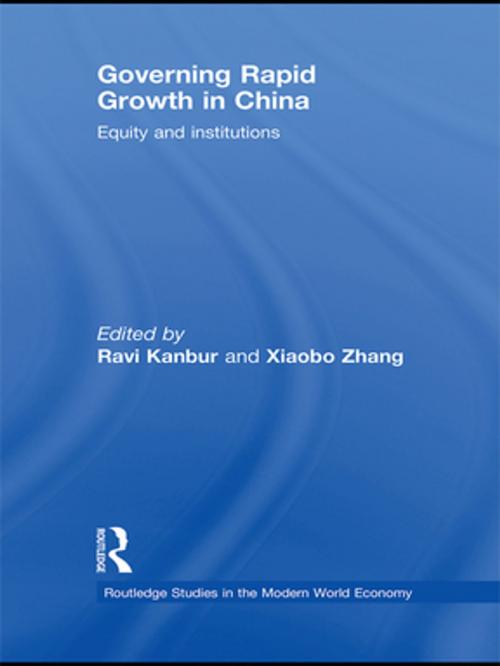| Author: | ISBN: | 9781135972318 | |
| Publisher: | Taylor and Francis | Publication: | April 15, 2009 |
| Imprint: | Routledge | Language: | English |
| Author: | |
| ISBN: | 9781135972318 |
| Publisher: | Taylor and Francis |
| Publication: | April 15, 2009 |
| Imprint: | Routledge |
| Language: | English |
After three decades of spectacular economic growth in China, the problem is no longer how to achieve growth, but how to manage its consequences and how to sustain it. The most important consequence, at least as far as Chinese policy makers are concerned, is the rapidly growing inequality, between persons, between rural and urban areas, and between inland and coastal regions. At the same time, the institutions that have brought rapid growth so far are now under stress, and there is a need to reform and innovate on this front in order to sustain rapid growth, and to have growth with equity.
The analytical literature has responded to the emerging policy problems by specifying and quantifying their magnitude, understanding their nature, and proposing policy approaches and solutions. Policy makers have also been looking to analysts for interaction and assistance. This volume brings together a collection of the best available analyses of China’s problems in governing rapid growth, focusing on equity and institutions. Contributions include perspectives from leading policy makers who were intimately involved in the reform process, and from leading academics in articles published in top peer reviewed journals.
After three decades of spectacular economic growth in China, the problem is no longer how to achieve growth, but how to manage its consequences and how to sustain it. The most important consequence, at least as far as Chinese policy makers are concerned, is the rapidly growing inequality, between persons, between rural and urban areas, and between inland and coastal regions. At the same time, the institutions that have brought rapid growth so far are now under stress, and there is a need to reform and innovate on this front in order to sustain rapid growth, and to have growth with equity.
The analytical literature has responded to the emerging policy problems by specifying and quantifying their magnitude, understanding their nature, and proposing policy approaches and solutions. Policy makers have also been looking to analysts for interaction and assistance. This volume brings together a collection of the best available analyses of China’s problems in governing rapid growth, focusing on equity and institutions. Contributions include perspectives from leading policy makers who were intimately involved in the reform process, and from leading academics in articles published in top peer reviewed journals.















